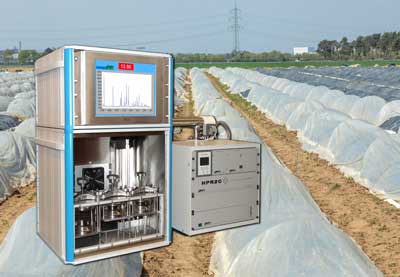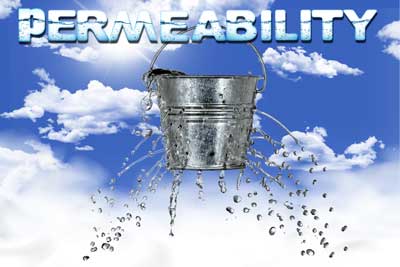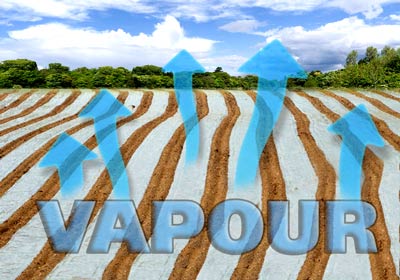

 Soil solarization is an eco-friendly technique for managing soilborne pests using the power of sunlight. By covering the soil with clear plastic during hot periods of the year, we harness radiant energy to elevate temperatures, effectively eliminating a wide range of soil-dwelling pests, including weeds, plant pathogens, nematodes, and insects. This method leaves no chemical residues, making it an excellent choice for both home gardeners and professional farmers.
Soil solarization is an eco-friendly technique for managing soilborne pests using the power of sunlight. By covering the soil with clear plastic during hot periods of the year, we harness radiant energy to elevate temperatures, effectively eliminating a wide range of soil-dwelling pests, including weeds, plant pathogens, nematodes, and insects. This method leaves no chemical residues, making it an excellent choice for both home gardeners and professional farmers.How do developers produce improved sheeting for Soil Solarization?
The critical factor in solarization is the vapour permeability of the sheeting and new developments require accurate testing of this for various gases including water vapour, carbon and carbon dioxide.
Our equipment can measures this for any sheeting. The equipment is also used for quality control. It can determine the precise oxygen and water vapours flow rates through the sheeting. It measures both of these, individually, with just one overall measurement.
The equipment is very precise, typically giving results to an accuracy in the PPM (Parts Per Million) to Parts Per Billion (PPB) range.
 Vapour permeability regulates the way moisture, oxygen and other gases are kept in or out of the soil. This helps sterilise harmful bacteria at the same time as boosting beneficial microorganisms. It can kill up to 90% of pathogens whilst beneficial bacteria like Bacillus survive and flourish
Vapour permeability regulates the way moisture, oxygen and other gases are kept in or out of the soil. This helps sterilise harmful bacteria at the same time as boosting beneficial microorganisms. It can kill up to 90% of pathogens whilst beneficial bacteria like Bacillus survive and flourish
What is Vapour permeability
Vapour permeability is a measure of the amount of vapour that passes through a material and can vary dramatically from substance to substance and vapour to vapour. Even seemingly similar material's permeabilities can differ by factors of thousands, millions or often even more. It is a critical factor in an huge number of manufacturing and engineering processes and affects everything from solarization sheeting through to the shelf-life of food and drugs- and then to the printability and strength of packaging. It is critical in agriculture, aerospace, buildings, corrosion, quality control, the integrity of electronics enclosures, the functioning of machinery and many more industries and applications.
Benefits of Soil Solarization
Aside from being an effective pest control method, soil solarization can improve soil health. It enhances nutrient availability for plants and positively influences the soil's microbiome. Additionally, it leaves no chemical residues, ensuring a safe and natural approach to pest management.
 Impacts
Impacts
Solarization during the summer months elevates soil temperatures to levels that eliminate disease-causing organisms, nematodes, and weed seeds. It also accelerates the breakdown of organic matter in the soil, releasing valuable nutrients like nitrogen, calcium, magnesium, potassium, and fulvic acid. This nutrient boost leads to faster plant growth and higher-quality yields.
Effectiveness on Various Pests
The degree of control varies based on factors like temperature, depth, and duration of soil heating, as well as the specific sensitivity of each pest species. While solarization effectively manages fungal and bacterial pathogens, it may require additional attention for nematodes due to their mobility in the soil profile.
Enhancing Your Solarization Experience: Biosolarization
For experienced practitioners, there's an experimental technique called "biosolarization." By incorporating organic materials like crop residues and composts into the soil before solarization, you can potentially enhance the pesticidal effects. However, caution is advised to avoid overloading the soil, which could temporarily affect its suitability for planting.